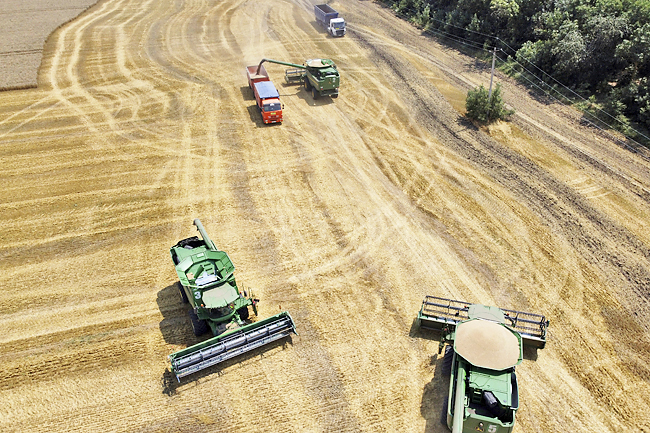ROME (AP) – Poorer countries in northern Africa, Asia and the Middle East that depend heavily on wheat imports risk suffering significant food security because of Russia’s war in Ukraine, and the conflict is poised to drive up already soaring food prices in much of the globe, the United Nations (UN) food agency warned yesterday.
Ukraine and Russia, which is under heavy economic sanctions for invading its neighbour two weeks ago, account for one-third of global grain exports.
With the conflict’s intensity and duration uncertain, “the likely disruptions to agricultural activities of these two major exporters of staple commodities could seriously escalate food insecurity globally, when international food and input prices are already high and vulnerable”, said Director-General of the Rome-based Food and Agriculture Organization (FAO) Qu Dongyu.
Also worrisome, Qu said in a statement, is the uncertainty over whether Ukraine’s farmers will be able to harvest wheat ready in June. In Ukraine, “massive population displacement has reduced the number of agricultural labourers and workers. Accessing agricultural fields would be difficult”, Qu noted.
Even if they could, Ukraine’s ports on the Black Sea are shuttered and its government this week banned the export of wheat, oats, millet, buckwheat and some other food products to prevent a crisis in its own country and stabilise the market.
Ukraine’s export ban doesn’t apply to its major global supplies corn and sunflower oil. It and Russia together account for 52 per cent of the world’s sunflower oil export market. They also account for 19 per cent of the world’s barley supply, 14 per cent of wheat and four per cent of corn.
“It is still unclear whether (other) exporters would be able to fill this gap,” Qu said, warning that wheat inventories are already running low in Canada. The United States, Argentina and other wheat-producing nations are likely to limit exports as governments seek to ensure domestic supply, he said.
Adding to the pressure, countries that rely on wheat from Russia and Ukraine are likely to increase import levels. Egypt, Turkey, Bangladesh and Iran buy 60 per cent of their wheat from Russia and Ukraine. Also heavily reliant on those two countries’ wheat exports are Lebanon, Tunisia, Yemen, Libya and Pakistan.



